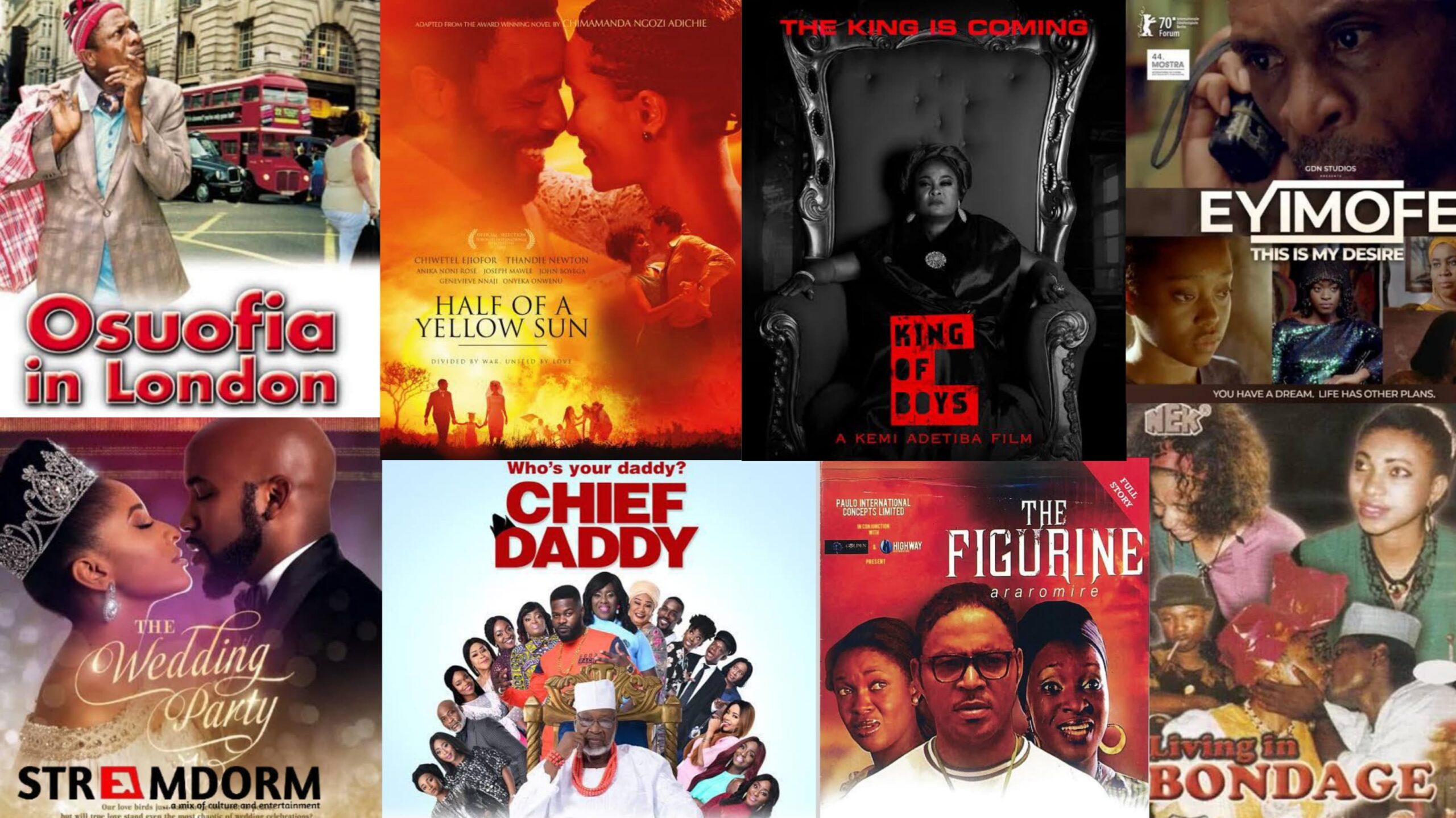Nollywood, Nigeria’s film industry, has grown from grassroots video productions into one of the world’s largest film powerhouses. With thousands of releases every year, Nollywood tells stories that blend culture, history, comedy, and drama. But a few films stand out as milestones; either for their artistry, commercial impact, or influence on the industry.
Below is a ranking of the 10 greatest Nollywood movies of all time, alongside an explanation of how the ranking was determined.
The Ranking
1. Living in Bondage (1992)
Widely regarded as the film that launched Nollywood’s video boom, it tells the story of a man who joins a secret cult in search of wealth, only to suffer tragic consequences. Its success marked a turning point for Nigerian cinema.
Summary: The film tells the story of Andy Okeke, who is lured into a money ritual cult. Though he becomes wealthy, the spiritual consequences destroy his life, leaving a cautionary legacy. It was a cultural reset that birthed Nollywood.
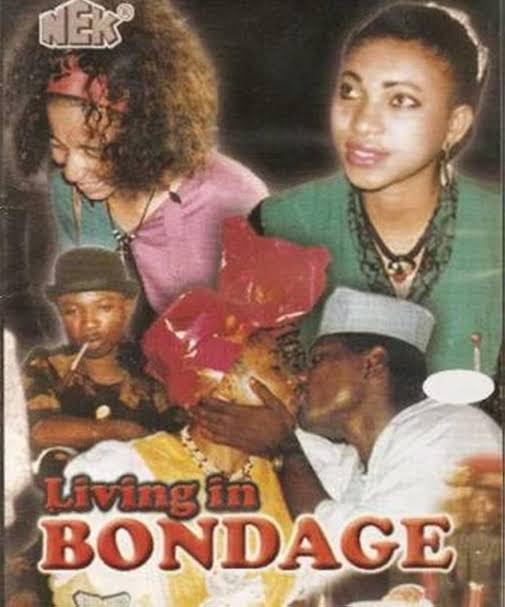
2. Osuofia in London (2003)
This comedy starring Nkem Owoh remains one of Nollywood’s most iconic films. It follows a naive villager who travels to London to claim an inheritance, blending Nigerian humor with cross-cultural themes.
Summary: Osuofia, a villager, travels to London to inherit his late brother’s property. His naive outlook collides with Western culture, creating comedic situations and showing the humor in cultural clashes.
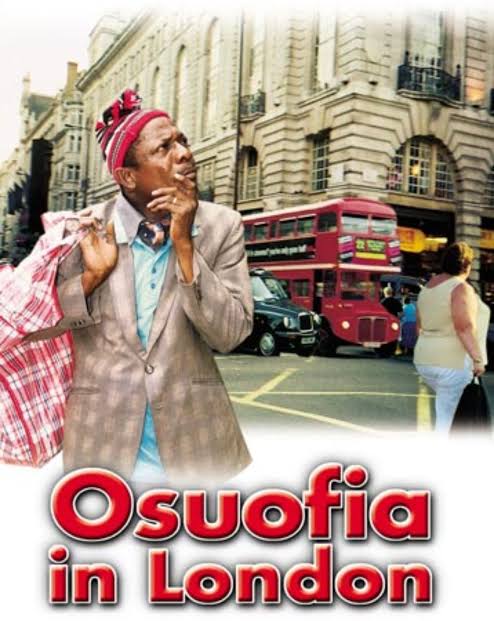
3. The Figurine (2009)
Directed by Kunle Afolayan, this psychological thriller won multiple African Movie Academy Awards. It is praised for its strong storytelling, cinematography, and for raising Nollywood’s technical standards.
Summary: Friends discover a mystical statue said to bring seven years of fortune, followed by seven years of doom. Their lives spiral as destiny, superstition, and human choices collide in this thriller.
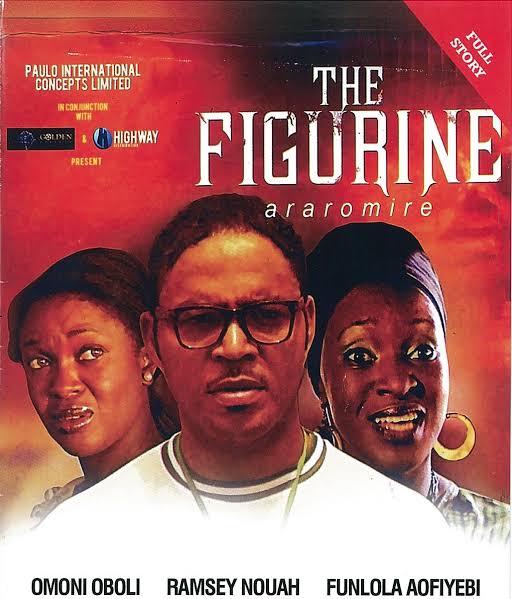
4. Half of a Yellow Sun (2013)
Based on Chimamanda Ngozi Adichie’s acclaimed novel, this historical drama explores love and loss during the Nigerian Civil War. With international stars like Chiwetel Ejiofor and Thandie Newton, it brought global attention to Nollywood storytelling.
Summary: Set during the Nigerian Civil War, the story follows twin sisters Olanna and Kainene as they navigate love, betrayal, and survival. It brings the human side of war to the big screen.
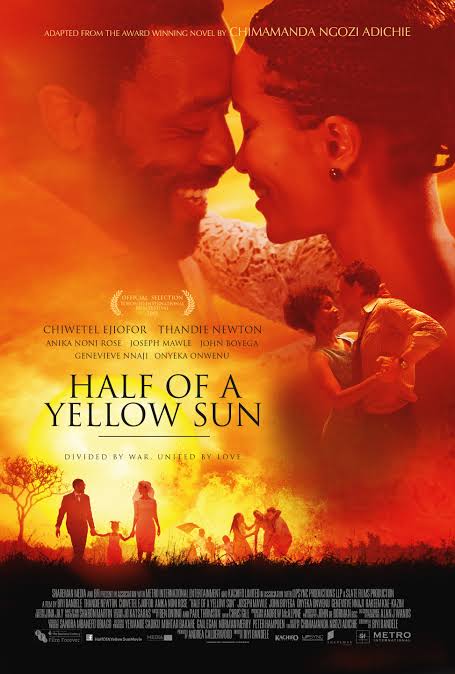
5. October 1 (2014)
Set just before Nigeria’s independence, Kunle Afolayan’s thriller follows a detective solving murders in a small town. It is both a gripping crime story and a reflection on colonial legacies.
Summary: A police detective from Lagos is sent to a rural town to solve a series of murders just before independence. As he uncovers the truth, the film explores themes of trauma, colonialism, and national identity.
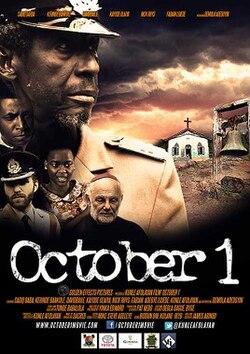
6. The Wedding Party (2016)
A romantic comedy that became Nigeria’s highest-grossing film at the time, grossing over ₦452 million. It captured the glamour, chaos, and humor of Nigerian weddings with mass audience appeal.
Summary: On the day of a high-society Nigerian wedding, chaos ensues as families clash, secrets spill, and love is tested. It’s a glamorous rom-com filled with laughter and cultural celebration.
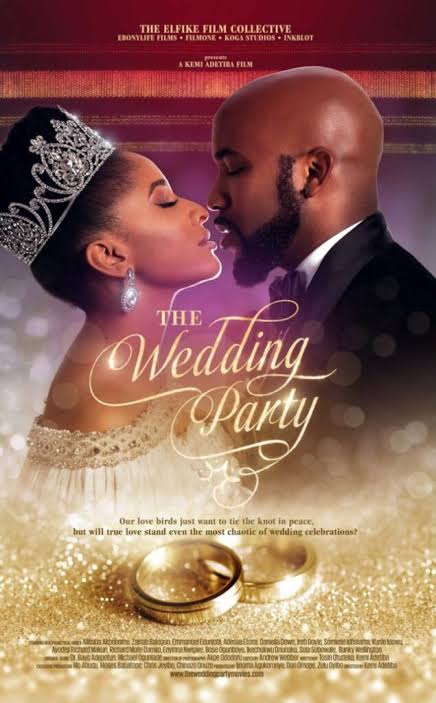
7. The Wedding Party 2: Destination Dubai (2017)
The sequel continued the success, this time set in Dubai. It reinforced Nollywood’s ability to deliver commercially successful, star-studded productions.
Summary: Picking up from the first film, this sequel follows a lavish wedding in Dubai. With drama, comedy, and exotic settings, it continues the spectacle that made the first movie a hit.

8. Chief Daddy (2018)
A family comedy about the chaos that follows a wealthy man’s death. With a star-studded cast, it was another major box office hit, earning about ₦387 million.
Summary: When a wealthy patriarch dies, his dysfunctional family scrambles to secure their inheritance. The film is a blend of humor and family drama, showing the chaos money leaves behind.

9. King of Boys (2018)
Directed by Kemi Adetiba, this political thriller follows a powerful woman navigating corruption and ambition. It received widespread acclaim for its storytelling and powerhouse performance by Sola Sobowale.
Summary: Eniola Salami, a powerful businesswoman with political ambitions, struggles to hold onto power. Betrayals, rivalries, and her own ruthlessness drive this intense political thriller.
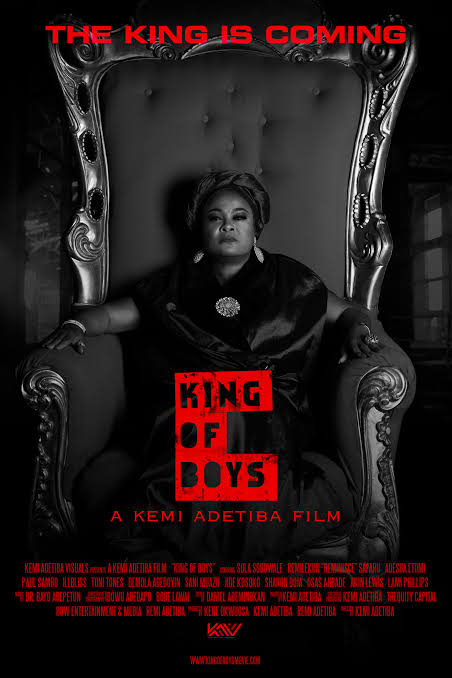
10. Eyimofe (2020)
An internationally acclaimed drama that portrays everyday Lagosians striving for better lives. It premiered at the Berlin International Film Festival and became the first Nigerian film added to The Criterion Collection.
Summary: Split into two chapters ‘This is My Desire’ and ‘This is My Story’ the film follows Mofe, an engineer, and Rosa, a hairdresser. Both dream of leaving Nigeria for a better life, but face harsh realities of class and survival.
How This Ranking Was Done
This ranking was not based solely on box office numbers or popularity. Instead, it considered four main factors:
- Historical Significance: Films that shaped Nollywood’s identity or marked a turning point in the industry.
- Critical Acclaim & Awards: Recognition from film critics, African Movie Academy Awards, and international festivals.
- Box Office Success & Popularity: Movies that broke records or captured mass audiences.
- Cultural Impact & Longevity: Titles that influenced pop culture, inspired conversations, or remain classics.
By balancing these factors, this list highlights films that not only entertained but also elevated Nollywood’s reputation globally.
Nollywood continues to evolve, moving from grassroots productions to globally recognized cinema. The films on this list represent milestones in that journey whether through breaking box office records, winning international acclaim, or shaping cultural conversations. As Nollywood grows, future films may join or even surpass these greats, but their legacy will always remain part of Nigeria’s cinematic history.
